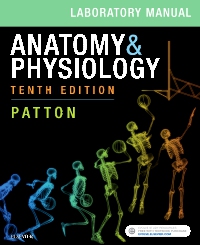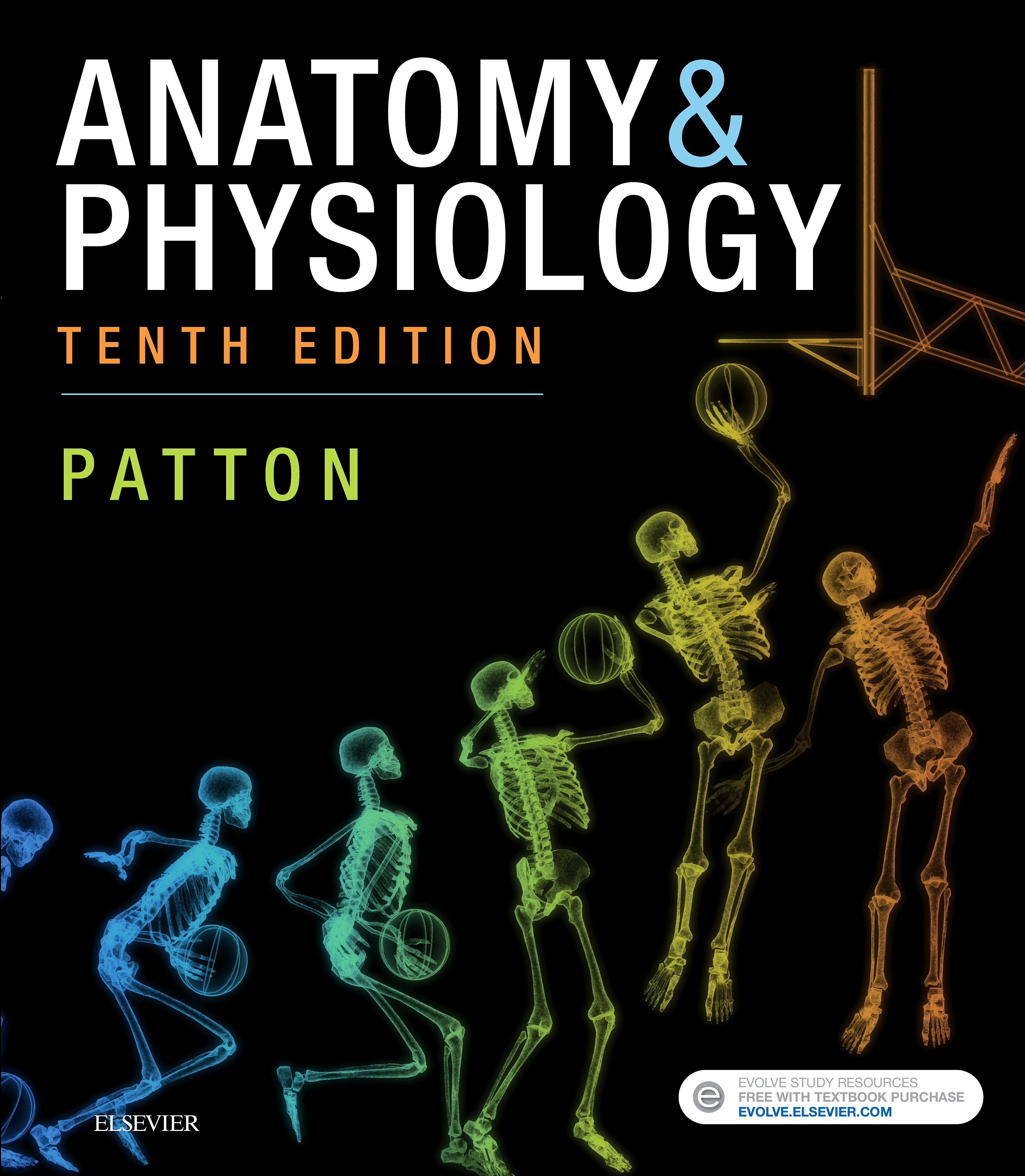
Anatomy & Physiology Laboratory Manual and E-Labs Elsevier eBook on VitalSource, 10th Edition
Elsevier eBook on VitalSource

Using an approach that is geared toward developing solid, logical habits in dissection and identification, the Laboratory Manual for Anatomy & Physiology, 10th Edition presents 55 lab exercises in a convenient modular format, giving you the flexibility to tailor your course accordingly. The exercises include labeling of anatomy, dissection of anatomic models and fresh or preserved specimens, physiological experiments, and computerized experiments. This practical, full-color manual also features safety tips, a comprehensive instruction and preparation guide for the laboratory, and tear-out worksheets for each exercise. Updated lab tests align with what is currently in use in today’s lab setting, and brand new histology, dissection, and procedures photos enrich learning. Enhance your students’ laboratory skills in an interactive digital environment with eight simulated lab experiences — eLabs.
Newer Edition Available
Anatomy & Physiology Laboratory Manual and E-Labs Elsevier eBook on VitalSource
-
- NEW! Brand new histology, dissection and procedures photos engage students and enrich learning
- UPDATED and NEW! Updated lab tests align with what is currently in use in today’s lab environment
- UPDATED! All chapters thoroughly revised to cover the latest anatomy and physiology lab exercises
- NEW! Improved formatting for easier use. Larger spaces allow for writing information and coloring, and better layout of pages facilitates lay-flat use in the lab
- Eight interactive eLabs further students’ laboratory experience in an interactive digital environment
- Labeling exercises provide opportunities to identify critical structures examined in the lab and lectures; and coloring exercises offer a kinesthetic experience useful in retention of content
- User-friendly spiral binding allows for hands-free viewing in the lab setting
- Step-by-step dissection instructions with accompanying illustrations and photos cover anatomical models and fresh or preserved specimens — and provide needed guidance during dissection labs. The dissection of tissues, organs, and entire organisms clarifies anatomical and functional relationships
- 250 illustrations, including common histology slides and depictions of proper procedures, accentuate the lab manual’s usefulness by providing clear visuals and guidance
- Easy-to-evaluate, tear-out Lab Reports can be turned in to instructors and contain checklists, drawing exercises, and questions that help students demonstrate their understanding of the labs they have participated in. They also allow instructors to efficiently check student progress or assign grades
- Learning objectives presented at the beginning of each exercise offer a straightforward framework for learning
- Content and concept review questions throughout the manual provide tools for students to reinforce and apply knowledge of anatomy and function
- Complete lists of materials for each exercise give the students and instructor a thorough checklist for planning and setting up laboratory activities, allowing for easy and efficient preparation
- Modern anatomical imaging techniques, such as computed tomography (CT), magnetic resonance imaging (MRI), and ultrasonography, are introduced where appropriate to give future health professionals a taste for — and awareness of — how new technologies are changing and shaping health care
- Boxed hints throughout provide students with special tips on handling specimens, using equipment, and managing lab activities.
-
- NEW! Brand new histology, dissection and procedures photos enrich learning
- UPDATED and NEW! Updated lab tests align with what is currently in use in today’s lab environment
- UPDATED! All chapters thoroughly revised to cover the latest anatomy and physiology lab exercises
- NEW! Improved formatting for easier use. Larger spaces allow for writing information and coloring, and better layout of pages facilitates lay-flat use in the lab
-
WELCOME TO THE ANATOMY AND PHYSIOLOGY LABORATORY
• The Scientific Method
• Measurement and Data Collection
• How to Dissect
• Using this Manual
• Safety First!
• How to Study for Lab Quizzes
THE BASICS
1. Organization of the body
2. Dissection: The whole body
3. The Microscope
4. Cell Anatomy
5. Transport through Cell Membranes
6. The Cell's Life Cycle
7. Epithelial Tissue
8. Connective Tissue
9. Muscle and Nerve Tissue
SUPPORT AND MOVEMENT
10. The Skin
11. Overview of the Skeleton
12. The Skull
13. The Vertebral Column and Thoracic Cage
14. The Upper Extremities
15. The Lower Extremities
16. Joints
17. Organization of the Muscular System
18. Skeletal Muscle Identification
19. Dissection: Skeletal Muscles
20. Skeletal Muscle Contractions
INTEGRATION AND CONTROL
21. Nerve Tissue
22. Nerve Reflexes
23. The Spinal Cord and Spinal Nerves
24. The Brain and Cranial Nerves
25. The Dissection: The Brain
26. Somatic Senses
27. Senses of Taste and Smell
28. The Ear
29. Hearing and Equilibrium
30. The Eye
31. Visual Function
32. Endocrine Glands
33. Hormones
REGULATION AND MAINTENANCE
34. Blood
35. Structure of the Heart
36. Electrical Activity of the Heart
37. The Pulse and Blood Pressure
38. The Circulatory Pathway
39. The Lymphatic System
40. Dissection: Cardiovascular and Lymphatic Systems
41. Respiratory Structures
42. Dissection: Respiratory System
43. Pulmonary Volumes and Capacities
44. Digestive Structures
45. Dissection: Digestive System
46. Enzymes and Digestion
47. Urinary Structures
48. Dissection: Urinary System
49. Urinalysis
REPRODUCTION
50. The Male Reproductive System
51. The Female Reproductive System
52. Dissection: Reproductive Systems
53. Development
54. Genetics and Heredity
SYNTHESIS
55. The Whole Body
LAB REPORT SUPPLEMENT




 as described in our
as described in our 